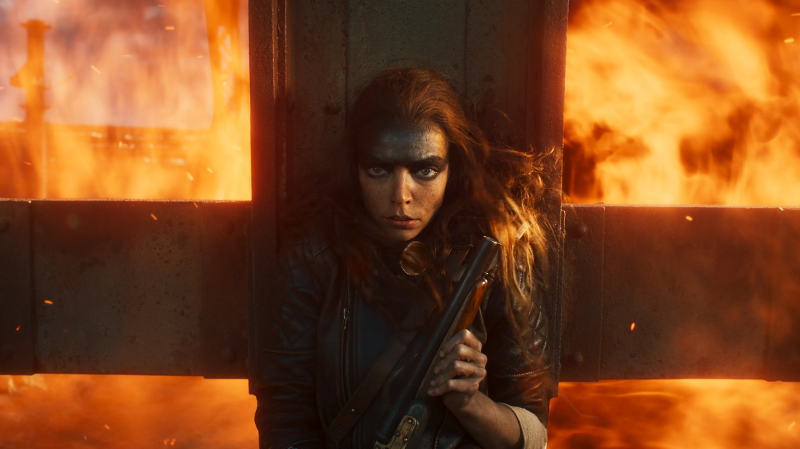'Inside Out 2' review: The battle between Joy, Anxiety feels very real in profound sequel
For teens, those who aren't yet teens, and anyone who was once a teen, the Pixar sequel “Inside Out 2” hits like an amusing, profound wrecking ball.
The original animated 2015 comedy “Inside Out” took audiences into young girl Riley’s complex mind and showcased a bevy of colorful emotions trying to keep it together for the kid’s sake, crafting an uncannily relatable movie in the process. Directed by Kelsey Mann, the next chapter (★★★½ out of four; rated PG; in theaters Friday) grows up alongside the newly minted teen and imagines the internal struggle, for all of us, when anxiety takes control.
The first "Inside Out" ended with Riley turning 12, and the sequel catches up with her (now voiced by Kensington Tallman) – as well as her core emotions Joy (Amy Poehler), Anger (Lewis Black), Sadness (Phyllis Smith), Fear (Tony Hale) and Disgust (Liza Lapira) – a year later. Riley has gone through a growth spurt, got braces (Disgust must have loved that day) and two besties, plus is a hockey star.
Join our Watch Party!Sign up to receive USA TODAY's movie and TV recommendations right in your inbox

The high school coach (Yvette Nicole Brown) sees her play and invites her to a skills camp – do well there and she could be playing as a freshman beside her super-cool idol Val Ortiz (Lilimar). The night before, however, Riley’s mind is thrown into disarray when Joy and Co. notice the red “puberty” button flashing and a demolition crew arrives to make way for new emotions. With frizzy hair and big plans to change things around, Anxiety (Maya Hawke) is the leader of this bunch that also includes precocious Envy (Ayo Edebiri), disinterested Ennui (Adele Exarchopoulos) – or, as she calls herself, “the boredom” – and painfully shy Embarrassment (Paul Walter Hauser).
Need a break? Play the USA TODAY Daily Crossword Puzzle.
The major friction within the first movie – Joy needing to find a way to deal with Sadness – seems small potatoes compared to a battle over Riley's entire belief system. As the girl is forced to choose between hanging with her friends or making new ones like Val, Anxiety pulls a coup, ditching the conflicted youngster's Sense of Self and exiling Joy's old emotions to the back of Riley’s mind with a mountain of bad memories.

“Inside Out 2” frontloads the funny bits and then wallops you in the final act, which ambitiously depicts the desperate hopelessness when anxiety has a hold and won’t let go. (“I don’t know how to stop Anxiety," Joy says, one of the truest things you’ll ever hear in an animated fantasy.)
The middle is where it loses focus, as Joy’s group goes on a mission to set Riley right before it’s too late. The original movie took a similar tack but did it better, and the sequel misses a real chance to flesh out the intriguing new emotions more. Aside from Anxiety, a truly inspired Disney antagonist, they feel more like side characters than Anger, Fear, Disgust and Sadness did in the first outing.
The way these movies artfully create a connection between real life and a fantastical inner existence is still top notch. Every parent of a tween or teenager will feel seen via a construction sign that reads “Puberty is messy” and get a kick out of Mount Crushmore, part of a revamped Imagination Land. And while there’s no Bing Bong around this time, the introduction of preschool cartoon canine Bloofy (Ron Funches) and the scene-stealing Nostalgia (June Squibb) showcase that signature “Inside Out” cleverness in its personalities.

Pixar has rightfully taken knocks for sequels and prequels that don’t hold up to the beloved originals. Recent films like “Turning Red,” “Luca” and “Soul” have the novel spark that's missing from, say, “Monsters University,” “Cars 3” and “Lightyear.” But “Inside Out 2” is one of the better revisits in the studio’s history because of how well it knows its audience.
Who hasn't felt anxiety getting the better of joy, or a natural connection between sadness and embarrassment? With empathy, hope and a heap of metaphors, it's a matured "Inside Out" that still understands the wonders and wrinkles of being a kid.
Disclaimer: The copyright of this article belongs to the original author. Reposting this article is solely for the purpose of information dissemination and does not constitute any investment advice. If there is any infringement, please contact us immediately. We will make corrections or deletions as necessary. Thank you.







